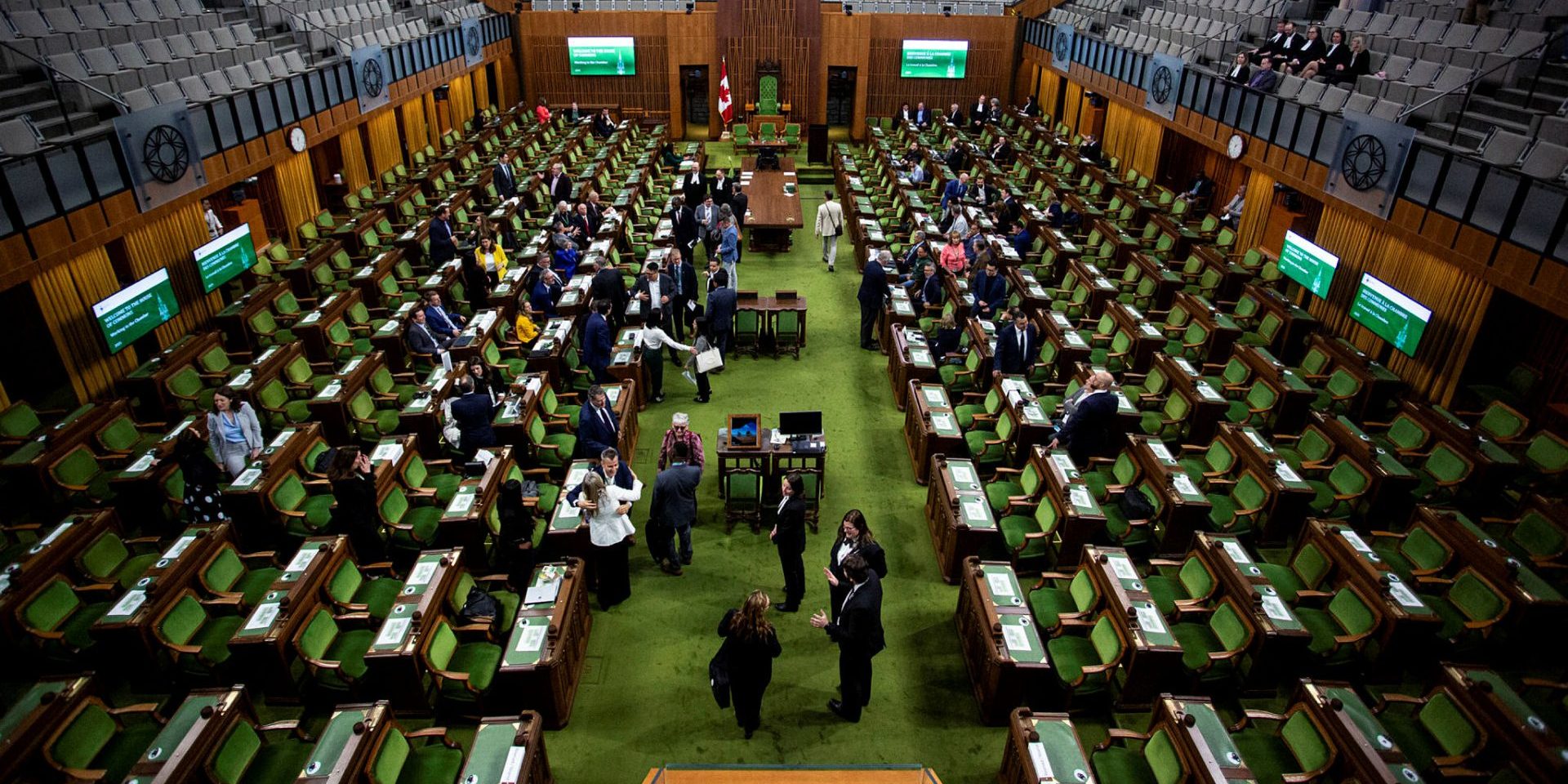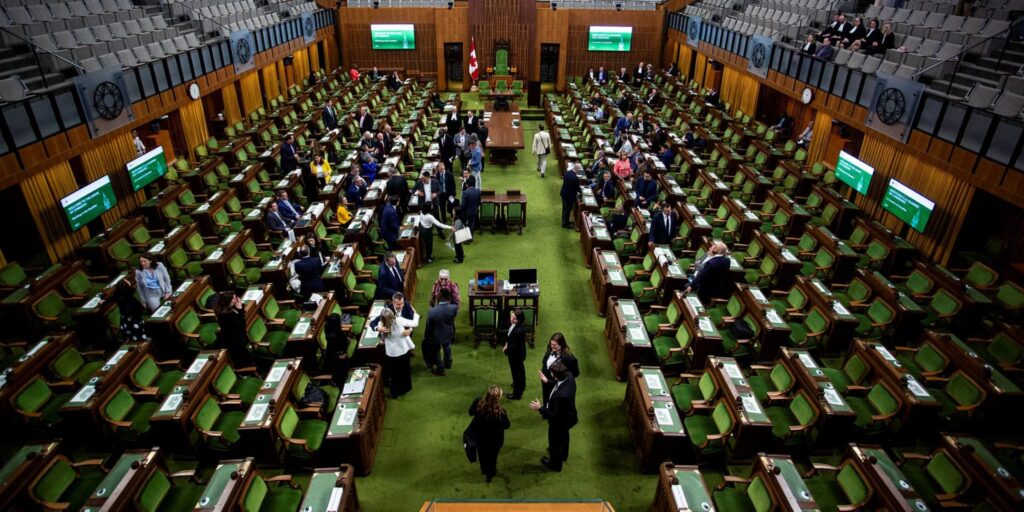Parliament is back: will it be like the last one?

By Lori Turnbull, Senior Advisor
Published in the Hill Times on May 26, 2025
The changes on the front benches provide a window of opportunity to set a more constructive and healthy culture as Parliament reconvenes. Here’s hoping.

Newly elected MPs attend an orientation session put on by House of Commons staff on May 21, 2025. The House will be full this week when MPs return for this Parliament. The Hill Times photograph by Andrew Meade.
On May 26, Parliament meets for the first time since being prorogued back in January when then-prime minister Justin Trudeau announced his intent to resign. Prior to that, the House had spent most of the fall of 2024 stuck in limbo. An unresolved motion of privilege prevented most types of business from going through. Partisan rhetoric became more hostile by the day to the point where descriptors like “toxic” were commonplace. Now that Parliament is set to meet again with a new prime minister and a different partisan make up, can we expect a different—and better—atmosphere?
The Rules of Order and Decorum for the House of Commons are meant to ensure, or at least encourage, civility. Freedom of speech is of vital importance to the role of an elected representative, but always it must be balanced against the need for Members of Parliament to show respect for one another and maintain order in their conduct and debate. The rules of engagement reflect this desire for balance. For example, Members of Parliament refer to one another as “honourable members” rather than by proper names. Questions in the House and in committees are directed through the Speaker or the committee chair rather so as to prevent the escalation of heated exchanges. And, if things really boil over, the opposition is seated a safe distance of two sword lengths away from the government to prevent the worst from happening.
But even as these rules remain in place, successive House Speakers have struggled to maintain order. Politicians, looking to score points with supporters by ganging up on or embarrassing their opponents, will risk engaging in unparliamentary language because, even if it offends the rules, it makes the papers. The House of Commons is a place to debate legislation, but has also become a studio. It is common for political parties to make videos of particularly heated exchanges or aggressive lines of questioning in committees and then send these clips to supporters and funders in the hopes of ginning up the base. It is anything, but civil.
Any meaningful departure from this nonsense would require the support of the party leaders. At the risk of putting too fine a point on it, the toxic tone of the last Parliament was set largely by Justin Trudeau and Pierre Poilievre, the leaders of the Liberal and Conservative parties whose personal contempt for one another was palpable. But Trudeau has been replaced by Mark Carney and Poilievre failed to secure his own seat in the last election. The changes on the front benches provide a window of opportunity to set a more constructive and healthy culture as Parliament reconvenes.
King Charles III will read the speech from the throne to open Canada’s 45th Parliament. If this is not the most appropriate and meaningful way to set proceedings off on the right foot, it is hard to imagine what would be. The King’s participation is both a profound statement of Canada’s sovereignty and a resounding link to our history as a parliamentary democracy. As parliamentary proceedings begin again, there is every reason to hope for a more productive atmosphere.